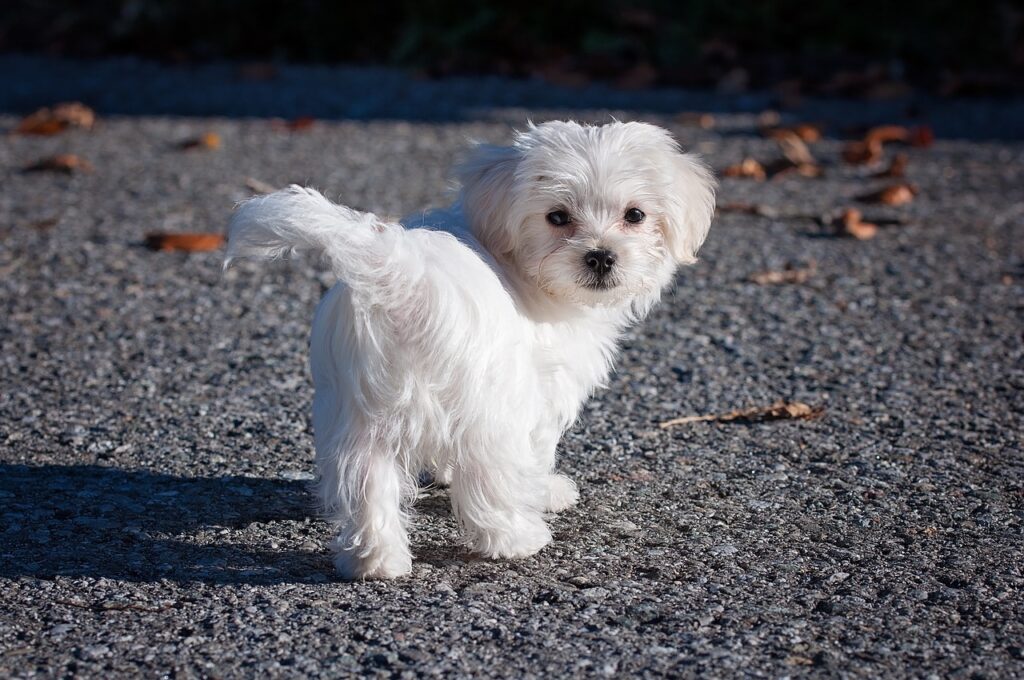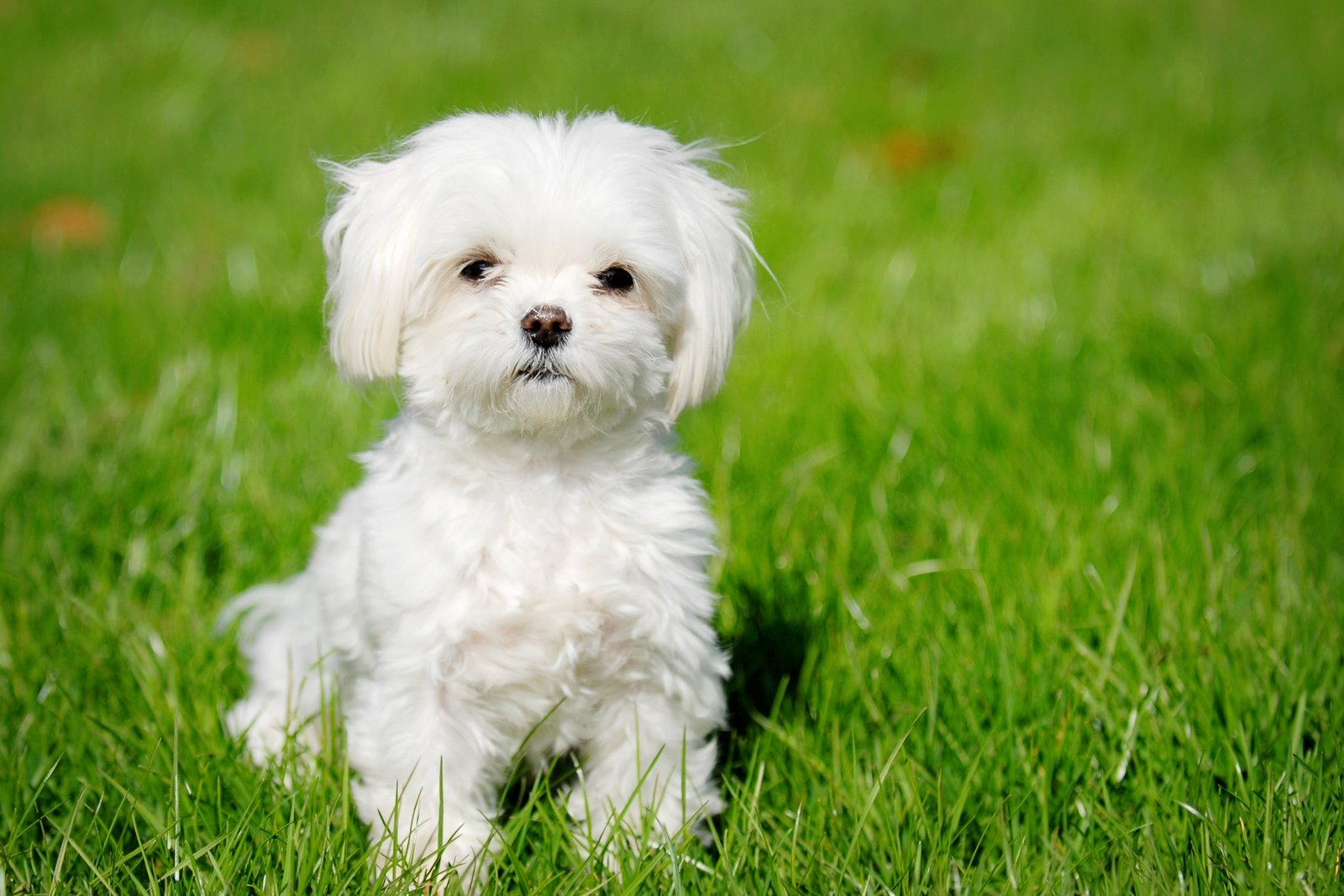Maltese: A Guide to This Affectionate Breed – The Maltese breed stands out for its elegance, charm, and affectionate nature. Originating from the central Mediterranean, this small dog captivates hearts with its luxurious white coat and endearing personality.

Introduction to the Maltese Breed
Origin and History
The Maltese breed traces its roots back to ancient times, believed to have existed for over 2,000 years. Named after the island of Malta, these dogs were favored by royals and nobles throughout history, often depicted in paintings and literature.
Physical Characteristics
Known for its silky, straight, and flowing white coat, the Maltese is a small-sized dog with a playful yet graceful presence. They typically weigh between 4 to 7 pounds and stand around 7 to 12 inches tall.
Temperament and Personality Traits
Affectionate Nature
Maltese dogs thrive on human companionship, displaying unwavering affection and loyalty. They often form strong bonds with their owners and enjoy being part of family activities.
Intelligence and Trainability
Despite their small size, Maltese dogs exhibit remarkable intelligence and are relatively easy to train. They respond well to positive reinforcement and enjoy learning new tricks and commands.
Compatibility with Families
Their gentle temperament makes Maltese dogs suitable companions for families, including households with children, as long as interactions are supervised and gentle.
Grooming Needs
Coat Care
The Maltese coat requires regular grooming to prevent matting and tangling. Daily brushing and periodic trimming are essential to maintain its lustrous appearance.
Bathing and Grooming Routines
Regular baths using mild, dog-friendly shampoos are recommended, along with proper attention to ear cleaning, dental care, and nail trimming.
Exercise Requirements
Activity Levels
Despite their small stature, Maltese dogs are moderately active and enjoy indoor playtime. They require daily exercise to stay healthy and happy.
Ideal Exercises and Activities
Short walks, interactive games, and indoor play sessions cater to their exercise needs, ensuring they receive adequate mental and physical stimulation.
Health Concerns
Common Health Issues
While generally healthy, Maltese dogs may be prone to dental problems, eye issues, and luxating patella. Regular veterinary check-ups are crucial to maintain their well-being.
Preventive Care and Vet Visits
Routine vaccinations, dental check-ups, and parasite prevention are essential aspects of responsible Maltese care.
Feeding Requirements
Recommended Diet
A high-quality, balanced diet formulated for small breeds is ideal for Maltese dogs. Consultation with a veterinarian can help determine the best dietary plan.
Nutritional Needs and Considerations
Monitoring portion sizes and avoiding overfeeding is crucial to prevent obesity in this breed. Fresh water should always be available.
Training Tips
Effective Training Methods
Positive reinforcement, consistency, and patience are key to successfully training Maltese dogs. Short, engaging sessions yield the best results.
Socialization Importance
Early socialization with people, other pets, and varied environments helps shape a well-adjusted and sociable Maltese.
Maltese in Pop Culture
Representation in Media
The Maltese breed has appeared in various films, advertisements, and artwork, symbolizing elegance, charm, and companionship.
Cultural Significance
Across different cultures, the Maltese breed has been associated with nobility, love, and loyalty, contributing to its timeless appeal.
Adoption and Purchase
Finding Reputable Breeders
When considering adoption or purchasing a Maltese, it’s essential to research and engage with reputable breeders or rescue organizations.
Adoption Considerations
Factors such as lifestyle, commitment, and the dog’s needs should be carefully considered before bringing a Maltese into a home.
Conclusion
The Maltese breed, with its endearing characteristics and rich history, continues to capture hearts worldwide. Their affectionate nature, intelligence, and suitability for families make them cherished companions. Understanding their grooming, exercise, health needs, and the importance of proper training ensures a fulfilling relationship between these delightful dogs and their owners.
FAQs about Maltese
- Are Maltese dogs hypoallergenic?
- While no dog is completely hypoallergenic, Maltese dogs are known to produce fewer allergens due to their minimal shedding and low dander.
- Do Maltese require extensive grooming?
- Yes, Maltese dogs require regular grooming, including daily brushing and periodic baths, to maintain their coat’s health and appearance.
- Are Maltese good with children?
- Maltese dogs can be good with children when socialized early and given gentle interactions under supervision.
- What are common health issues in Maltese dogs?
- Some common health concerns for Maltese include dental problems, eye issues, and luxating patella.
- How much exercise do Maltese need?
- Maltese dogs require moderate exercise, including short walks and indoor playtime, to stay healthy and happy.




